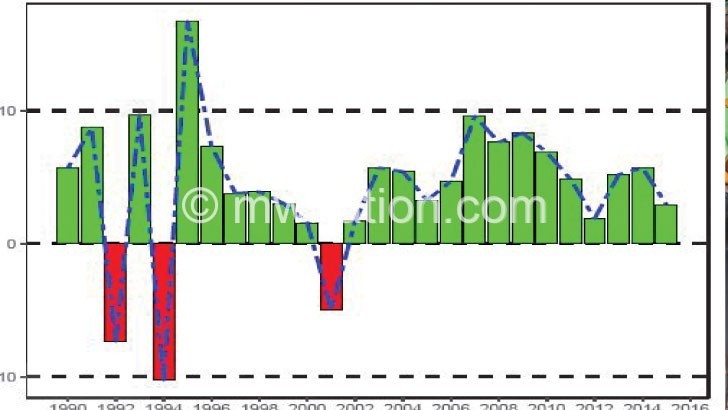Treasury sticks to5% GDP target
Ministry of Finance, Economic Planning and Development has maintained that the economy will this year grow by five percent regardless of weather-related shocks, lower tobacco earnings and intermittent power supply.
The ministry’s spokesperson Davis Sado said in an interview on Tuesday said the projected growth is premised on favourable weather conditions in the last growing season and its spillover effects to other sectors.
Despite government’s firm position, investment and advisory firm Nico Asset Managers argues that the effects of Cyclone Idai that hit the country in March thisyear and the lower earnings from tobacco could dampen growth.

“This coupled with the long-standing issue of intermittent power supply, which in turn affect our manufacturing industry, it is more likely that the GDP [gross domestic product] will hover around three percent to 4.5 percent,” read the firm’s monthlyreview.
But Sado explained that government’s projections are well calculated, saying they are done in February and reviewed September after collecting data and conducting business interviews.
He said: “We can comfortably say our growth target will remain at five percent. We do not want to change our tune based on what other quarters think, but actual figures on the ground.
“For now, our growth projection is still at five percent until we conduct a survey with industry which would suggest otherwise, but for now our economy will grow by five percent.”
Malawi’s GDP growth for 2018 was maintained at four percent as reported by the RBM in August 2018, but the growth estimate for 2019 was revised upwards from 4.1 percent as estimated in August 2018 to five percent in February 2019.
The February 2019 Business Interview Survey cited a number of factors necessitating the revision of the GDP figures.
For example, while the Department of Climate Change and Meteorological Services forecasted El Nino conditions for the 2018/19 rainy season, which were expected to have severe effect on agricultural production, the negative effects were less than anticipated, resulting in an increased agricultural production in almost all crops compared to the previous season.





